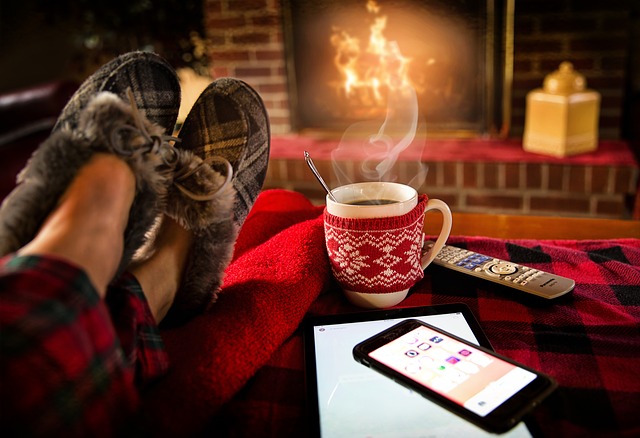Weather Advice For All!
 Winter can be a tranquil and of course a fun time of the year especially for kids but it is important to have safety at the front of your mind whenever you are travelling from place to place or enjoying the weather from your home. The best meteorologists will often tell you that you need to be prepared for the worst and hope for the best when it comes to weather events. Noone's predictions are 100% so err on the side of caution.
Winter can be a tranquil and of course a fun time of the year especially for kids but it is important to have safety at the front of your mind whenever you are travelling from place to place or enjoying the weather from your home. The best meteorologists will often tell you that you need to be prepared for the worst and hope for the best when it comes to weather events. Noone's predictions are 100% so err on the side of caution.
Winter weather events can often cut power for millions of people from anywhere to few hours to even a few days. A generator is often a wise purchase but you have to have a cautionary sense when it comes to operating one. Generators need well ventilated areas to be operated properly and should not be placed anywhere near windows or vents. Your oven or stove should never be used to heat your home and is an extreme hazard. Carbon monoxide detectors are essential devices to have in your home all year round but they are also important when operating generators or similar devices. Smoke detectors and carbon monoxide detectors are key to warning you of danger and you should check them regularly to make sure they are in working order by installing fresh batteries and testing them often.
Travelling during extreme weather events is never wise and you should head any warning that is set by the authorities. During the winter months you need to customise your emergency stock of supplies to match what weather you will be experiencing. Extra batteries, warm weather clothing and supplies, medications and food and water rations are important items to keep readily available. Don’t forget about your pets as well when figuring out your food and water needs.
If you do need to travel be sure to have your car stocked with emergency items like blankets, flashlights, warm clothes, jumper cables, bottled water and non-perishable food items. It is always good advice to have your gas tank on the fuller side so that if you are stuck in any cold weather you can use your car to keep warm in an emergency. If stuck in the snow/ice you may need to run your car on and off to keep warm for an extended period of time. Venting your tailpipe is necessary so carbon monoxide does not back up into the car.
Avoiding overexertion in the winter is a real concern. The increase of the possibility of having a heart attack while dealing with the results of winter storm events is elevated and you should be mindful while shovelling snow or dealing with ice issues. Knowing the signs and symptoms of hypothermia and frostbite and how to treat them will help in any emergency situation. Frost bite can cause the loss of feeling to exposed skin like the face and ears as well as your extremities. If you ever find yourself in a situation where you believe frostbite has set in then you can treat the parts of the body by trying to warm them with warm water and body heat. Be sure to avoid using a heating pad or massaging of the affected area. Hypothermia is an overall loss of body temperature because of the cold. Having a temperature below 95 is a considerable emergency and should be treated as such. In this event try to warm through the center of the body (head, neck, chest and groin) with warm dry blankets. Be sure to call 911 or your local emergency services if any additional help is needed.
Of course it is always good to be a friendly neighbor, and if you know of a family or person who is isolated or in need of assistance make it a point to check on them. While you may have power (thanks to that generator!) they may not! Be sure to be a good neighbor and give a helping hand.
- Cheryl Bourland's blog
- Login or register to post comments
 Google+
Google+


 Information Deemed Reliable but Not Guaranteed. CENTURY 21 H.S.V. Realty is licensed in the state of Arkansas. CENTURY 21 and the CENTURY 21 Logo are registered service marks owned by Century 21 Real Estate LLC. H.S.V. Realty, Inc. fully supports the principles of the Fair Housing Act and the Equal Opportunity Act. Each franchise is independently owned and operated. Any services or products provided by independently owned and operated franchisees are not provided by, affiliated with or related to Century 21 Real Estate LLC nor any of its affiliated companies.
Information Deemed Reliable but Not Guaranteed. CENTURY 21 H.S.V. Realty is licensed in the state of Arkansas. CENTURY 21 and the CENTURY 21 Logo are registered service marks owned by Century 21 Real Estate LLC. H.S.V. Realty, Inc. fully supports the principles of the Fair Housing Act and the Equal Opportunity Act. Each franchise is independently owned and operated. Any services or products provided by independently owned and operated franchisees are not provided by, affiliated with or related to Century 21 Real Estate LLC nor any of its affiliated companies.